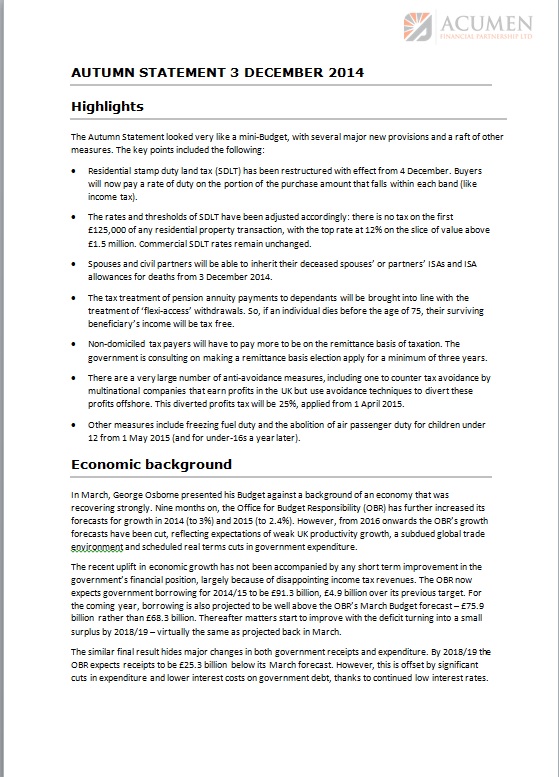Easter is just a few days away, the clocks have all sprung forward and the world is a fresher and greener place already.
Spring cleaning might be something that some of us find ourselves tackling just before the family descends at Christmas time but there are lots of good reasons to spring clean your finances around now with the start of the new tax year coming straight after the Easter break. Take some time to look at where your money is going, set aside a proper amount of time and make sure you’ve gather all your paperwork together.
Here are a few tips that can really help get the ball rolling:-
1. First of all add up your income, including salary, bonus, interest on cash accounts and any other income you might have such as rental income or dividends on shares but remember to knock off tax, National Insurance and Student Loan repayments.
2. Separate annual/irregular income from your regular monthly earnings so you can see what comes in every month and what only arrives less regularly (e.g. once a year) so this way you know the pattern of your income as well as the yearly total.
3. Make sure you’ve got 6 -12 months bank statements, recent credit card bills and copies of your household bills all to hand – utility bills are easy but food and general spending can add up to more than you expect so try to be as realistic as you can here. Remember to include your regular savings, life assurance and pension contributions too.
4. Bank statements need checking regularly for unexplained payments but it’s also worth checking on the standing orders and direct debits that are still “live” but are no longer needed. Any that no longer apply should be cancelled – you can do this online but if you write or call in to your local branch you can also deal with it that way. If you can’t remember why you are paying that £50 per month, check it out. It may be something you don’t need any more.
5. Contact a Credit Reference agency such as Experian or Equifax to get a copy of your credit history – make sure there aren’t any loans that you know nothing about or entries that are incorrect.
6. Now see how much you’re spending remembering to add in cash withdrawals and think about birthdays, holidays, Christmas, car servicing too and make a note of the regular monthly expenses as well as the yearly ones such as car insurance or the intruder alarm contract and the “one-off” expenses such as wedding presents and household items – new carpet, new bathroom etc.
7. Once you have added up all your income and all your spending you will have a yearly total which you can divide by 12. Then total up the regular monthly bills and expenditure. This way you can see what needs to be added in for extras like birthday presents and irregular spending.
8. Compare the totals in point 4 with the income you have, both annually and monthly. You need to look at both the yearly surplus or shortfall as well as the monthly ones so you can draw up a sensible budget plan. You will find it easier to spend wisely and not get caught out by the sort of extras that can be planned for but can also be overlooked leading to an unpleasant shock just when you least want it. It will help you target debt and pay it off more quickly as well as help you to save for the future.
9. You may find you are spending more than you are earning so the sooner you can identify this and can spot where savings can be made, often without affecting your quality of life (those regular lattes and cappuccinos soon add up) the sooner you will take control of your finances and will be able to look forward to a brighter financial future.
10. Check out the tariffs for your gas, water, electricity, phone and broadband. You can use websites like Uswitch or Moneysavingexpert to help make some savings here.
Draw up a budget you can stick to. If you could do with some ideas to get started with have a look at Acumen’s simple Cashflow Statement, which you can download for free.
https://www.acumenfinancial.co.uk/wp-content/uploads/2014/10/CashFlow.pdf
Whatever your financial goals, now is the time to draw up a plan that will help you achieve them but be realistic and include what you intend to spend on key things. Some expenses are unavoidable, some are very difficult to cut, while others will be easier to tweak. Small changes can mean big results
That brings us back to the lattes again…
Related Articles
-
Financial Planning
 November 18, 2014
November 18, 2014Planning your financial future
Have you ever wondered what an IFA does within a working day? Acumen Financial Partnership Direct.... -
News
 December 10, 2014
December 10, 2014Major announcements in the 2014 Autumn Statement
We have pleasure in sharing our summary of the key announcements in the Chancellor’s Autumn Statem.... -
Financial Planning
 December 22, 2014
December 22, 2014Top Tips to consider when choosing an IFA
When it comes to making life-changing financial decisions, seeking the services of an Independent Fi....

